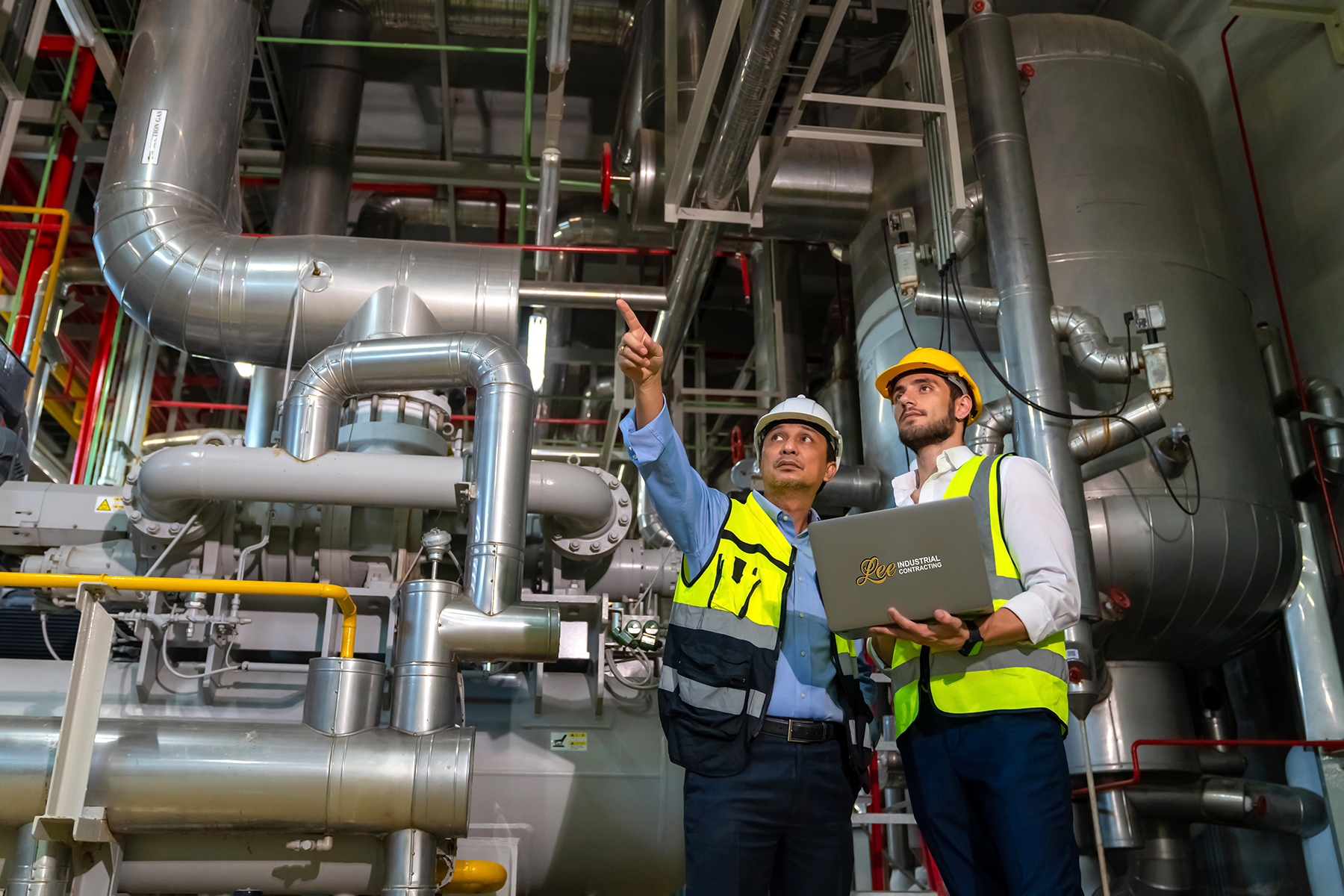
As an industrial manufacturer, your business relies heavily on the equipment needed to perform each job. But keeping abreast of the requirements surrounding them isn’t always simple. Strict OSHA regulations, environmental laws and the rapid pace of technology make navigating these requirements complex. In this article, we’ll discuss what to focus on and how Lee Industrial Contracting can assist.
OSHA Regulations and Requirements
The Occupational Safety and Health Administration (OSHA) sets standards for safe working conditions. With safety always a concern for facilities using industrial equipment, compliance with OSHA regulations is paramount. Here are a few things you should always keep top of mind:
- Safety Standards: OSHA’s top priority is keeping workers safe. Its standards cover a range of safety issues like machine guarding, electrical safety and how to handle hazardous materials. It’s important to update your equipment regularly to avoid penalties and ensure worker safety.
- Inspections and Audits: Conducting inspections and audits on a regular basis can help identify areas of potential non-compliance. An experienced industrial contractor like Lee Contracting can perform a thorough assessment of your equipment and facilities to verify they are in compliance with OSHA standards.
- Training: Any time you purchase new equipment or hire new staff, be sure to provide thorough training on how to use the equipment safely.
- Documentation: Keep detailed records of any compliance-related activities so you have an account of what has been done and when. In the event of an audit or an injury, you will want to provide this information.
Environmental Laws and Requirements
In addition to safety requirements, there are also a number of environmental laws that you must take into account. Industrial contracting and manufacturing can potentially affect the surrounding environs, and these laws are designed to mitigate the impacts. Environmental laws that apply to industrial settings might include:
- Emissions Control: Industrial equipment is required to meet emissions standards set by agencies like the Environmental Protection Agency (EPA). Emissions are especially a concern with older equipment. Upgrading to newer, more efficient machinery can help reduce emissions and help you to stay compliant.
- Waste Management: Many sites produce a high amount of industrial waste, and disposing of it properly is critical. You should also use eco-friendly materials whenever possible to cut down on hazardous waste. Ensuring your equipment supports sustainable practices is part of staying compliant with environmental laws.
- Water and Soil Protection: Perhaps the most stringent of the environmental laws involves the contamination of water and soil. Employing appropriate containment systems and using technology that minimizes environmental impact can help you reduce the potential of water and soil pollution.
New Technologies
As an industrial contracting company with more than 25 successful years in business, we’ve seen firsthand the evolution of equipment in our industry. In the last decade, the rise of new technologies for the industrial sector has exploded. This rapid advancement of technology brings both opportunities and regulatory challenges. Here are a few key areas to consider:
- Automation and Robotics: Automated systems and robotics can enhance efficiency, but must comply with safety standards. Manufacturers of unmanned systems typically build safety features into the equipment, but it’s important to have a set of checks and balances in the event of a failure. When implementing these systems, be sure to discuss safety and devise a contingency plan.
- Internet of Things (IoT): IoT devices give you the benefit of data-driven operations, but they come with cybersecurity and data privacy regulations. To ensure compliance with these requirements, secure implementation and regular monitoring are a must.
- Artificial Intelligence (AI): Everyone is talking about AI for its ability to optimize operations, but again, you must comply with industry standards and ethical guidelines. Be transparent and keep good records to stay compliant.
Partnering with Experts
Navigating these requirements can feel overwhelming, but choosing a partner who understands them well can help alleviate the burden. An experienced industrial contracting firm like Lee Contracting prioritizes these regulations and can help you plan for new equipment while following guidelines.
Whether you need an assessment, implementation, or fabrication, Lee Contracting has the experience you need to take on these challenges successfully.


